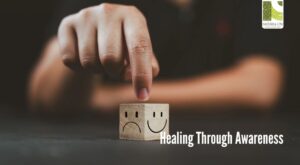Adrenal Fatigue or Just Burnout? How to Listen When Your Body Says “Enough”

“I’m just tired.”
How often do we say that—and move on with another coffee, another deadline, another commitment?
But what if that tiredness isn’t just about being “busy”? What if your body is waving a red flag?
Let’s talk about something quietly taking a toll on our health: Adrenal fatigue and burnout. While they aren’t exactly the same, they share a language your body is trying to speak—if only you’d listen.
Meet the Two Culprits: Adrenal Fatigue vs Burnout
Burnout
This is the result of chronic emotional, physical, or mental stress. You feel drained, unmotivated, and detached—even from things you love.
Adrenal Fatigue (unofficial term)
This refers to the overworking of your adrenal glands, which produce hormones like cortisol and adrenaline. After prolonged stress, they may not function optimally, leading to extreme fatigue, brain fog, low immunity, and even hair loss.
Note: “Adrenal fatigue” is not officially recognized in conventional medicine (like by the Endocrine Society), but many integrative and functional medicine practitioners believe it’s a useful model to explain certain chronic stress symptoms.
Are You Just Tired—or Running on Empty?
Here are some signs your body might need a reset:
- You wake up tired—even after 8 hours of sleep
- Cravings for salty or sugary foods
- Reliance on caffeine to function
- Mood swings, anxiety, or depression
- Weakened immunity and frequent colds
- Low libido and menstrual irregularities
If this sounds familiar, your body isn’t being lazy. It’s asking for help.
The Cortisol Connection
Cortisol, your body’s main stress hormone, isn’t bad—you need it to wake up, focus, and respond to danger. But chronically high levels?
It wrecks your sleep, skin, mood, and metabolism. And eventually, your adrenals say: “We’re out.”
How to Start Healing Naturally
1. Eat to Balance Hormones
- Avoid sugar, processed foods, and excessive caffeine
- Focus on complex carbs, lean proteins, and healthy fats
- Add magnesium-rich foods (like spinach, nuts, and avocados)
- Hydrate well—dehydration stresses the body
2. Sleep Is Sacred
Your adrenals repair when you rest. Aim for 7–9 hours, go to bed before 11 PM, and wake with the sun if you can.
3. Breathe and Reset
Try meditation, nature walks, or simple breathwork. Even 5 minutes a day helps lower cortisol.
4. Consider Adaptogens
Ashwagandha, Rhodiola, and Holy Basil are known to support stress response. Always consult your healthcare provider.
5. Build Boundaries
Say no. Cancel what doesn’t serve you. Rest is not a reward—it’s a requirement.
When to See a Doctor
If you have persistent fatigue, unexplained weight loss/gain, or mood disorders—see a healthcare provider. Conditions like thyroid disorders, anemia, or autoimmune issues can mimic adrenal fatigue symptoms.
You don’t have to “push through” all the time.
Your body whispers before it screams.
Listen. Rest. Heal.
Because you weren’t made to burn out—you were made to shine.
References :
1. Harnessing the power of nutritional antioxidants against adrenal hormone imbalance-associated oxidative stress
2.Evaluation of stress, burnout and hair cortisol levels in health workers at a University Hospital during COVID-19 pandemic
3. Effectiveness of stress management interventions to change cortisol levels: a systematic review and meta-analysis





